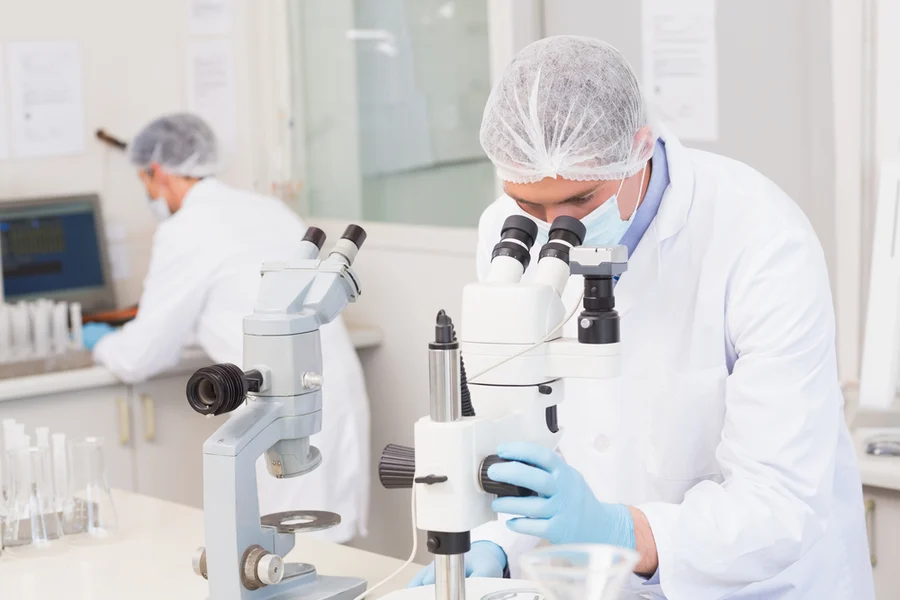Foodborne illnesses affect millions of people worldwide each year, resulting from the consumption of contaminated food or beverages. The most common culprits include harmful bacteria, viruses, parasites, and toxins. Preventing foodborne illnesses starts with controlling and monitoring the presence of these microorganisms, a task that relies heavily on microbial analysis in food laboratories. This process is essential for ensuring that food products are safe to consume, helping to maintain public health and trust in the food supply chain.
What is Microbial Analysis?
Microbial analysis refers to the testing of food and beverages for the presence of pathogenic microorganisms. These microorganisms, if left unchecked, can cause severe illnesses such as salmonellosis, listeriosis, and E. coli infections. Laboratories perform microbial testing at various stages of food production, from raw materials to the final packaged product, ensuring food safety standards are met before the product reaches consumers.
Common Pathogens Tested in Microbial Analysis
The primary goal of microbial analysis is to detect the presence of harmful organisms in food. Some of the most common pathogens labs test for include:
Salmonella: Often found in raw meat, poultry, eggs, and dairy, salmonella can cause severe gastrointestinal illness.
Listeria monocytogenes: Found in ready-to-eat products like deli meats and soft cheeses, listeria is particularly dangerous for pregnant women, the elderly, and immunocompromised individuals.
Escherichia coli (E. coli): E. coli contamination often occurs in undercooked beef, unpasteurized milk, and contaminated water. Some strains can cause severe illness, including kidney failure.
Campylobacter: A leading cause of foodborne illness, campylobacter is typically found in raw or undercooked poultry and unpasteurized dairy products.
In addition to these pathogens, microbial analysis may also test for spoilage organisms like yeast and mold, which can degrade food quality and safety.
Testing Methods for Microbial Analysis
Food labs use a variety of techniques to detect microbial contamination, ranging from traditional culturing methods to more advanced molecular techniques.
Culture Methods: Traditional culture methods involve incubating food samples in specific media to promote the growth of microorganisms. After incubation, microbiologists examine the colonies formed to identify harmful pathogens. While effective, this method can be time-consuming, often taking 24-72 hours to yield results.
Rapid Microbiological Methods (RMM): Advances in food testing have led to faster, more accurate detection methods. Techniques such as PCR (Polymerase Chain Reaction) and ELISA (Enzyme-Linked Immunosorbent Assay) allow labs to detect specific DNA sequences or proteins associated with pathogens. These methods are quicker and can detect even low levels of contamination, providing results within hours.
Environmental Monitoring: Microbial analysis isn't limited to food products alone. Labs also test the food processing environment, including surfaces, equipment, and air quality, to ensure there are no sources of contamination. This is particularly important in industries producing ready-to-eat foods where post-production contamination can occur.
Importance in Preventing Foodborne Illnesses
Microbial analysis is critical in identifying and eliminating contamination before food products reach consumers. Early detection of pathogens can help prevent the spread of foodborne illnesses and avert potential outbreaks. For food manufacturers, it ensures compliance with food safety regulations set by bodies like the U.S. FDA, EFSA, or FSSAI, helping avoid recalls and legal consequences.
Moreover, microbial testing provides assurance to consumers that the food they purchase meets stringent safety standards. With increasing consumer demand for transparency in the food industry, effective microbial analysis plays a vital role in maintaining trust and confidence in food brands.
Regulatory Compliance
Government agencies worldwide have strict food safety regulations to protect public health. Compliance with these regulations requires regular microbial analysis throughout the production process. Food companies must meet standards for pathogen limits and perform routine testing to ensure their products remain safe over time. Non-compliance can result in hefty fines, product recalls, and reputational damage.
Reducing Foodborne Illnesses: A Shared Responsibility
Preventing foodborne illness requires a collective effort from food producers, regulators, and consumers. While microbial analysis ensures products are safe at the time of production, proper food handling and storage practices at home are equally important. Simple measures like cooking food to the correct temperature, storing perishables properly, and practicing good hygiene can greatly reduce the risk of foodborne illness.
The Future of Microbial Analysis
As technology advances, the future of microbial analysis will likely include faster and more automated testing methods. Innovations such as biosensors and real-time monitoring systems can provide continuous assessment of food safety throughout production and distribution. These advancements will help minimize contamination risks even further, ensuring a safer food supply for everyone.
Conclusion
Microbial analysis is a critical tool in preventing foodborne illnesses, ensuring that food products are safe from harmful pathogens before reaching consumers. By detecting and eliminating microorganisms like salmonella, listeria, and E. coli, food labs protect public health and help maintain trust in the global food supply chain. As the food industry continues to evolve, the importance of rigorous microbial testing will only grow, making it a key pillar of food safety and quality assurance.


